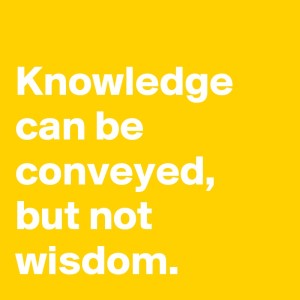“When someone is searching, said Siddhartha, then it might easily happen that the only thing his eyes still see is that what he searches for, that he is unable to find anything, to let anything enter his mind, because he always things of nothing byt the object of his search, because he has a goal, because he is obsessed by the goal. Searching means: having a goal. But finding means: being free, being open, having no goal. You, O venerable one, are perhaps indeed a searcher, because, striving for your goal, there are many things you don’t see, which are directly in front of your eyes.”
Have spent the past week at Ängsbacka outside Molkom in Värmland, Sweden, at the No Mind-festival. Knowing I would not have a lot of time or the wherewithal to read something heavy, I brought Siddhartha by Hermann Hesse with me, which in and of itself seems a bit comical, now that I’ve finished it. I mean, the No Mind festival is filled with “teachers teaching”, which is one thing Siddhartha is continuously critical about in the book. Up until the end, when he realizes the value he actually has received from quite a few different teachers through out his life.
 “Look, my dear Govind, this is one of my thoughts, which I have found: wisdom cannot be passed on. Wisdom which a wise man tries to pass on to someone always sounds like foolishness. […] Knowledge can be conveyed, but not wisdom. It can be found, it can be lived, it is possible to be carried by it, miracles can be performed with it, but it cannot be expressed in words and taught.”
“Look, my dear Govind, this is one of my thoughts, which I have found: wisdom cannot be passed on. Wisdom which a wise man tries to pass on to someone always sounds like foolishness. […] Knowledge can be conveyed, but not wisdom. It can be found, it can be lived, it is possible to be carried by it, miracles can be performed with it, but it cannot be expressed in words and taught.”
This difference between knowledge and wisdom makes sense to me, as wisdom, for me, has to be embodied. It is knowledge internalized, and transformed on it’s way through and out of me, into the world. If I am simply repeating words, without having put my own twist to them – making them mine, rebirthing them, enriching them with my onlyness -, is it not simply knowledge then? Regurgitated by me, rather than applied upon life, my way?
“[…] I prefer the thing over the words, place more importance on his acts and life than on his speeches, more on the gestures of his hand than his opinions. Not in his speech, not in his thoughts, I see his greatness, only in his actions, in his life.”
That last bit about greatness seen through his actions, seen in his life, is yet another way to describe wisdom, is it not?
The book I am blogging about is part of the book-reading challenge I’ve set for myself during 2018, to read and blog about 26 Swedish and 26 English books, one book every week, books that I already own.